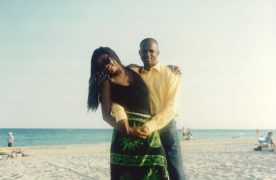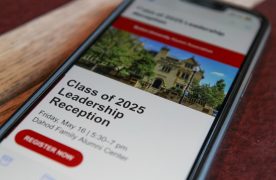While most people were listening to Ed Sheeran or DJ Khaled this summer, I spent my time listening to Joseph Campbell’s lectures on mythology. I listened to them because I’m simply an insecure-wannabe-intellectual who has trouble taking breaks from learning.
For those of you who do not understand the concept of a liberal arts education, this choice may seem strange to you. Why would I — a journalist — spend most of my free time listening to 50-year-old lectures on mythology? Because mythology helps explain the truth.
In the last two weeks, The New York Times Magazine and its podcast series, The Daily, covered the airstrikes in Iraq. According to the military, these airstrikes are the most precise ones yet.
However, New York Times reporters found out that the civilian casualties are potentially much larger than expected — almost six times the estimate.
When I heard about these stories and the response to them, I thought back to the lectures.
I realized that to understand politics and the news, you need to understand four concepts: facts, opinions, lies and myths.
A fact is an objective true statement. For example, David Bowie was born on Jan. 8, 1947.
An opinion is not the opposite of a fact, but rather a judgment based on facts and myths. For example, David Bowie is one of the greatest rock stars of all time.
A lie is a statement that is not true. For example, David Bowie is still alive. (Rest in peace David).
A myth is a false judgment or statement that is rooted in facts and opinions. For example, the American Dream is a myth. (I apologize to all those that thought I was going to continue with David Bowie examples.) The American Dream is a myth because it is a false statement, and idea that hard work can alone affect social mobility is rooted in opinions.
But enough of my definitions — how does all this apply to the most recent news story?
The response to the article and similar articles exposing the military’s negligence and covering up of mistakes isn’t based just on the lie of the military. The response to the article was based on how it shatters a myth. The myth is that the American military and its allies are the best. This myth is a judgment of seemingly related facts. The U.S. military is one of the longest lasting militaries and one of the largest, too, if not the largest.
Exposing lies and scandals are much more common than disproving myths, as myths are more ingrained in our culture. Myths give explanations and purpose to life, much like religion. Myths are so similar in their makeup to religion that Joseph Campbell often said that mythology was other people’s religion and religion was misinterpreted mythology.
Myths can help people explain things in their lives. People hold onto myths no matter how objectively absurd they are. A horseshoe is not lucky on its own, but people still think when something good happens to them when they are near one, there was a correlation. Similar things happen when you talk about the American Dream. People that have “prospered” following the American Dream believe that anyone can achieve what they have achieved. But sadly, this isn’t the case. There are more important factors that influence whether you succeed or not. Hard work is a small fraction of it. If hard work alone creates success, then a large majority of the richest people in the world wouldn’t be where they are today.
So how do we get rid of myths? People’s responses to this are often not much more than: “Let’s create a better and more productive myth!” The way to get rid of a myth is to give truth and facts the respect they deserve. To get rid of a myth, a culture needs to admit that everything isn’t idyllic and won’t automatically correct itself. Myths are other people’s lies to keep themselves happy.










